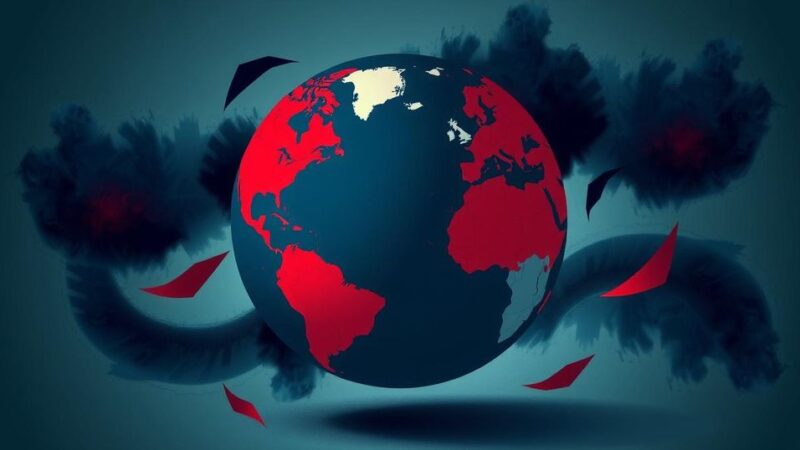Egypt enhances its influence in the Horn of Africa through alliances with Somalia and Eritrea, countering Ethiopia’s expanding reach. A recent summit in Asmara focused on enhancing bilateral relations and regional security amidst allegations of Egypt’s military involvement in Sudan. This active engagement signals Egypt’s determination to remain a key player in African geopolitics despite the potential exacerbation of tensions in the region.
Egypt is enhancing its influence in the Horn of Africa through strategic alliances with Somalia and Eritrea, following a recent tripartite summit held in Asmara. Egyptian President Abdel Fattah Al-Sisi met with Eritrean President Isaias Afwerki and Somali President Hassan Sheikh Mohamud to solidify their collaborative stance, which aims to establish a united front against Ethiopia. This summit followed the controversial allegation made by Sudan’s Rapid Support Forces commander, Mohamed Hamdan Dagalo, who accused Egypt of conducting airstrikes on his forces, underscoring Cairo’s direct military involvement in the ongoing Sudanese conflict. The summit is set against a backdrop of increasing regional tensions, particularly regarding Ethiopia’s expanding territorial influence. The Eritrean government noted that the summit primarily focused on improving bilateral relations and addressing regional security matters. However, the underlying intention appears to be the formation of a coalition aimed at countering Ethiopian aspirations, particularly in light of a recent agreement wherein Ethiopia has secured access to a port and naval base in Somaliland. Egypt’s presidential communication emphasized the summit’s objective to explore avenues for strengthening bilateral relations to achieve mutual developmental goals within the region. Ethiopian Prime Minister Abiy Ahmed has publicly condemned Egypt’s growing affiliations, asserting that his country will vehemently defend its sovereignty and dignity against any external threat. In the context of the Sudanese conflict, Egypt is openly supporting Sudan’s army chief, Abdel Fattah al-Burhan, despite being part of broader diplomatic efforts aimed at brokering peace. The Rapid Support Forces have accused Egypt of deploying U.S.-made weaponry in its military operations, a claim that Egypt has categorically denied while reiterating its commitment to Sudan’s stability and the integrity of its governing institutions. Former Egyptian Deputy Foreign Minister Ambassador Hussein Haridi stated that Egypt has been proactive in seeking an end to the conflict and facilitating political resolutions among Sudan’s neighbors, highlighting the potential repercussions of continued instability for Egypt itself. Moreover, Sudanese political analyst Mohamed Torshin articulated Egypt’s stance against groups wielding armaments outside governmental purviews, acknowledging the reverberating effects this has on Egypt’s national security.
The current geopolitical climate in the Horn of Africa has catalyzed increased activity among regional powers, with Egypt seeking to establish itself as a principal player. Through alliances with Somalia and Eritrea, it aims to counter Ethiopia’s influence, especially concerning control over strategic waterways and land access important for trade and military purposes. As tensions have heightened, particularly due to Ethiopia’s agreements with neighboring regions like Somaliland for naval access, Egypt’s military activities have drawn scrutiny and accusations of aggression, particularly from Sudanese factions involved in the ongoing conflict. The implications of these maneuvers extend beyond traditional diplomacy, entering the realm of military engagement, which has significant ramifications for regional stability and security.
In summary, Egypt is tactically enhancing its presence in the Horn of Africa through key alliances with Somalia and Eritrea, aiming to create a strategic bloc against Ethiopia amidst rising regional tensions. By participating in high-level summits and directly involving itself in the Sudanese conflict, Egypt is asserting its influence in a volatile region. The interplay of military and diplomatic strategies highlights Egypt’s commitment to safeguarding its interests, although this may inadvertently escalate conflicts with neighboring states, particularly Ethiopia.
Original Source: www.atalayar.com






